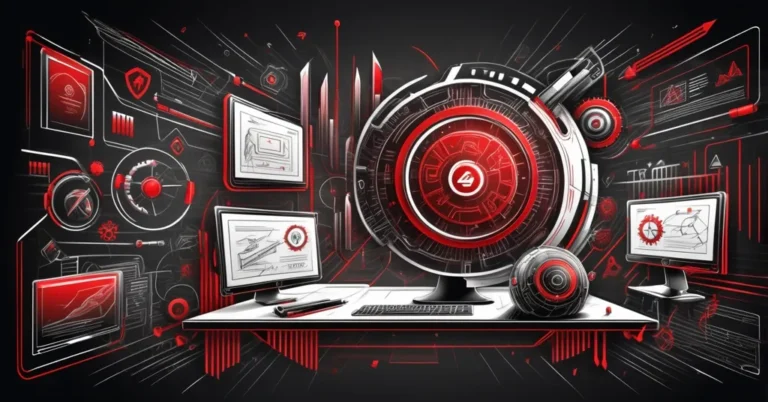Top Picks for Windows Antivirus in 2025: Balancing Security and Performance
Protecting your Windows device has never been more critical as cyber threats continue to evolve. Whether you’re a seasoned business leader or a tech-savvy professional, choosing the right antivirus software is key to maintaining both robust security and smooth system performance.
Malwarebytes is widely recognized for its strong defense against malware, viruses, and phishing attacks. Its user-friendly interface, coupled with a free 14-day trial, allows you to experience its comprehensive protection without immediate commitment. One expert remarked,
“Malwarebytes is hands-down the best antivirus program for Windows machines in 2025.”
For those seeking a more feature-rich experience, Bitdefender Total Security offers real-time scanning along with specialized modes for gaming and streaming. The built-in VPN adds another layer of convenience. While its extensive suite of tools is impressive, it does require installing multiple apps and browser extensions, which can be a drawback if you prefer a simpler setup.
An economical choice, TotalAV delivers essential protection for around $30 per year. Its offering is enhanced by system tune-up utilities and a VPN, making it an appealing option for users who need effective security on a budget without sacrificing performance.
For users with a higher security demand, McAfee Total Protection integrates advanced AI-based features such as a Deepfake Detector. AI-driven threat detection uses machine learning to spot unfamiliar and sophisticated cyber threats in real time—think of it as a digital watchdog that evolves alongside emerging risks. Though it comes at a higher price, its ability to adapt to new challenges has been praised by many industry experts.
Avast One is particularly popular with gamers. It includes a Do Not Disturb mode and offers extensive multi-device coverage, ensuring your system remains secure without unnecessary interruptions. Those who value seamless and resource-friendly protection can also rely on Windows Security, the built-in solution in Windows 11, which provides reliable real-time protection and a firewall at no extra cost.
Expanding the security net further, tools like uBlock Origin offer browser-level protection by filtering out malicious ads and trackers. In a similar vein, the privacy-focused Brave browser automatically combats phishing, cross-site tracking, and malvertising, ensuring a safer browsing experience by design. These solutions demonstrate that a layered approach—combining traditional antivirus software with secure browsing—can be the best defense in today’s digital environment.
Emerging AI agents such as those integrated in OmniDefender signal the next evolution in cybersecurity. By harnessing machine learning, these tools can automatically identify and neutralize zero-day exploits. This AI automation not only enhances threat detection but also allows businesses to streamline security workflows, effectively reducing manual oversight while boosting overall safety.
Experts caution against installing multiple antivirus applications on a single computer. Overlapping tools often lead to conflicts, higher resource consumption, and system instability. This serves as a reminder that a carefully chosen, layered security strategy is far more effective than aiming for overkill with redundant systems.
Key Takeaways and Questions
- Which antivirus solution offers the best overall protection for Windows systems in 2025?
Malwarebytes stands out for its robust security measures and user-friendly design, quickly earning the number one spot.
- What are the differences between premium antivirus products and free versions?
Premium solutions like McAfee Total Protection and Bitdefender Total Security provide advanced AI features and multi-device support, whereas free options like Windows Security offer essential real-time protection with low resource impact.
- How does AI-driven threat detection improve cybersecurity?
By employing machine learning, AI agents are capable of detecting and responding to threats as they evolve, adding an adaptive layer to traditional antivirus methods.
- What factors should guide your selection of an antivirus program?
Consider factors such as resource usage, ease of use, overall cost, and the specific protection features that align with your security needs.
- Why should you avoid installing more than one antivirus application?
Multiple antivirus tools can conflict with each other, leading to performance issues and even potential security gaps.
The array of options available today means you can align your security strategy with your unique needs, whether you’re safeguarding sensitive business data or ensuring a smooth gaming experience. As cyber threats become more sophisticated and integrated with AI capabilities, understanding the interplay between traditional antivirus protection and emerging technologies is key. This ongoing evolution not only protects current assets but also anticipates future challenges in our increasingly digital landscape.
